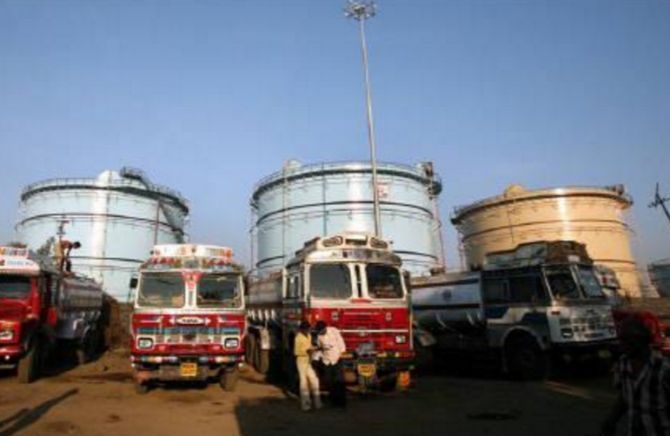The tankers carrying fuel from terminals to dealer outlets would not just have global positioning system (GPS) tracking but also an electronic key (e-key).

After a wake-up call from Uttar Pradesh's petrol pump chip scam, government-owned oil marketing companies Indian Oil Corporation (IOC), Hindustan Petroleum Corporation (HPCL) and Bharat Petroleum Corporation (BPCL) are tightening end-to-end monitoring of product movement and dispensing.
They now plan to introduce “e-key” facility as part of their strategy to have complete automation and real-time monitoring of their 55,000-odd outlets in the country by December 2018.
According to the plan, the tankers carrying fuel from terminals to dealer outlets would not just have global positioning system (GPS) tracking but also an electronic key (e-key).
The tanker can be opened through a one-time password (OTP) only at retail outlets.
Around 40 BPCL retail outlets in Delhi are availing this facility.
This, the ministry of petroleum and natural gas, believes would reduce adulteration and diversion of fuel.
“Even if we have centralized GPS tracking, people can manipulate it and divert routes.
"In this case, if a particular tanker takes more time to reach the particular destination from a terminal, the dealer will need special permission from the companies other than the OTP,” said an official close to the development.
The government had decided to go for real-time monitoring of petrol and diesel sales after a special task force in Uttar Pradesh found out that fuel filling machines at some outlets in the state were tampered and chips were inserted into the machine so that 10 per cent less fuel is dispensed.
As per the strategy of real-time monitoring, the company would come to know about sales of petrol and diesel from an outlet immediately.
For real-time monitoring, companies will spend about Rs 4-5 lakh on automating each outlet, which will attract an overall investment of about Rs 2,000 crore in the marketing infrastructure.
“We are inviting a tender early next year to extend the facility of “e-key” to another 500 BPCL outlets.
"The end-to-end automation involves tracking of fuel gone through nozzles and tanks too and will also transfer data to the central system,” he added.
As of October, 2,500 outlets of IOC, 4,800 outlets of HPCL and some of BPCL were automated.
Out of the total 60,799 fuel retail outlets in India, state-run companies have 55,325 outlets.
This includes 26,489 fuel stations by IOC, 14,161 by BPCL and 14,675 by HPCL.
The remaining 5,474 outlets are run by private sector including Essar, Reliance Industries and Shell. On a monthly basis, each outlet sell an average 170 kl of fuel.
Photograph: Punit Paranjpe/Reuters











